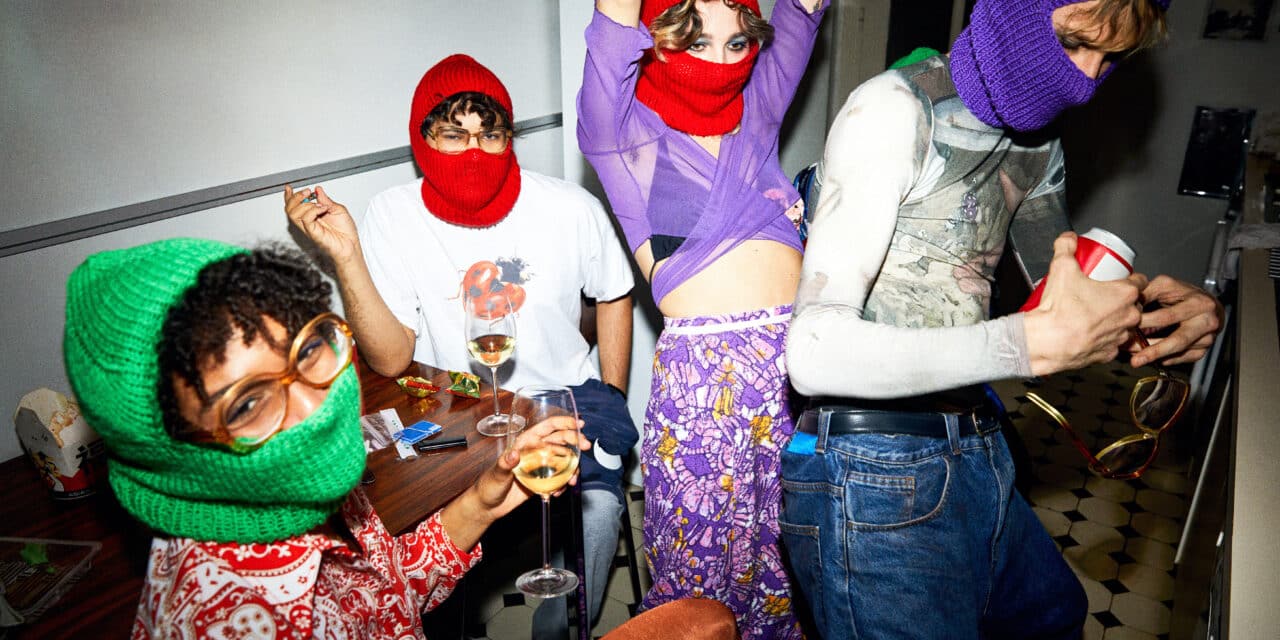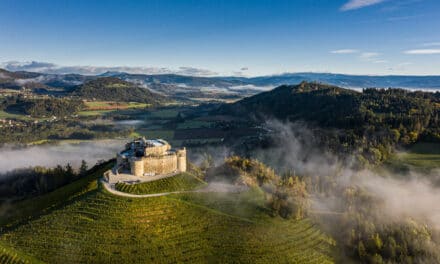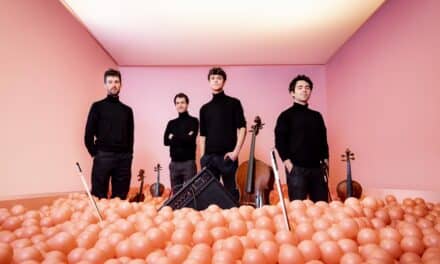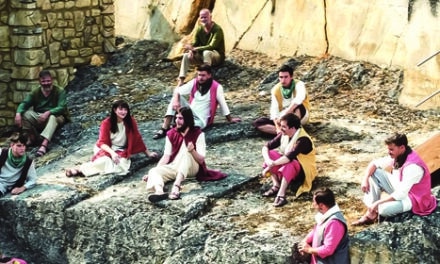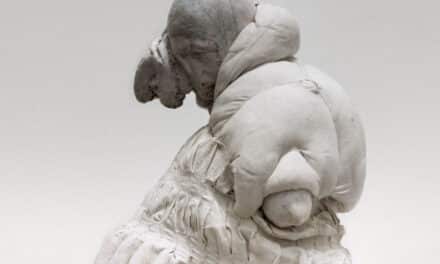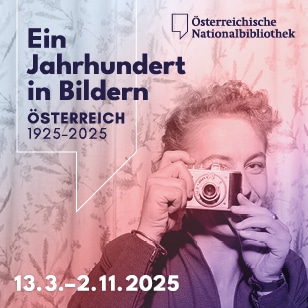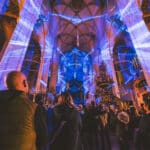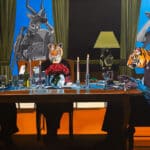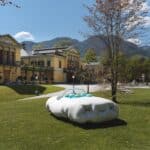Prozesse und Explosionen, Klassiker und Revolutionen – sowie eine eigene Verfassung! Die Wiener Festwochen erklären sich zur freien Republik Wien.
2024 erfinden sich die Wiener Festwochen neu: Ab 17. Mai treffen unter anderem Elfriede Jelinek, Kornél Mundruczó, Peter Brook, Florentina Holzinger, Carolina Bianchi und nora chipaumire in Wien auf Kirill Serebrennikov, Tim Etchells und Oksana Lyniv. Konzerne, Medienhäuser, Politikerinnen und Politiker und Gutmeinende werden vor ein Tribunal der Kunst gebracht, Arnold Schönberg und Karl Kraus gefeiert, das Verhältnis zwischen Mensch und Maschine ausgelotet, ein Volksstück durch Wien geschickt und Dieselmotoren rituell in die Luft gesprengt. Das Festival unter der Intendanz von Milo Rau erklärt sich zur Freien Republik Wien – eine Kunstrepublik von allen für alle! Neben den künstlerischen Produktionen gibt es viel Raum für Partizipation.
Die Wiener Festwochen finden heuer von 17. Mai bis 23. Juni statt und bieten 46 Produktionen und künstlerische Projekte aus den Bereichen Sprechtheater, Oper, Musik, Tanz, Performance, bildende Kunst und Aktivismus. Einen Schwerpunkt bilden dabei partizipative Formate und Projekte bei freiem Eintritt. 2024 erklären sich die Wiener Festwochen zur Freien Republik Wien mit eigener Hymne, Fahnen, neuen revolutionären Institutionen (Akademie Zweite Moderne, Die Wiener Prozesse), einer Festivalzentrale (Haus der Republik), einer Partyzentrale (Club der Republik) und dem aus 100 nationalen und internationalen Mitgliedern bestehenden Rat der Republik. „Wer, wenn nicht wir – wann, wenn nicht jetzt? Wien ist die Hauptstadt der Moderne, wir rufen nun eine zweite Moderne aus, gemeinsam mit hunderten Intellektuellen, Künstlern und Bürgern aus Wien, Österreich und der ganzen Welt“, so Festwochen Intendant Milo Rau.
„Holen wir uns den Glanz des Lebens zurück!“
Die Wiener Kulturstadträtin Veronica Kaup-Hasler meint: „Die Wiener Festwochen starten ambitioniert in die erste Festivalausgabe unter der Intendanz von Milo Rau: Als Festival, das sich mit den Mitteln der Kunst einmischt – inspirierend, mutig und politisch. Mit aufsehenerregenden internationalen Produktionen öffnen die Wiener Festwochen weit die Fenster zur Welt und setzen damit die Tradition des Festivals fort, das in seinen besten Zeiten immer an- und aufgeregt hat. Das transdisziplinäre Programm versammelt beeindruckend große Namen und erfreulich viele davon sind weiblich. Einige Positionen werden für Diskussionen sorgen und das ist gut so: Kunst darf polarisieren. Wichtig ist, dass die Gesellschaft in der Kunst Orte des Zusammenkommens und des Dialogs findet. Daher freut es mich, wie stark diese partizipativen Formate im heute präsentierten Programm verankert sind.“
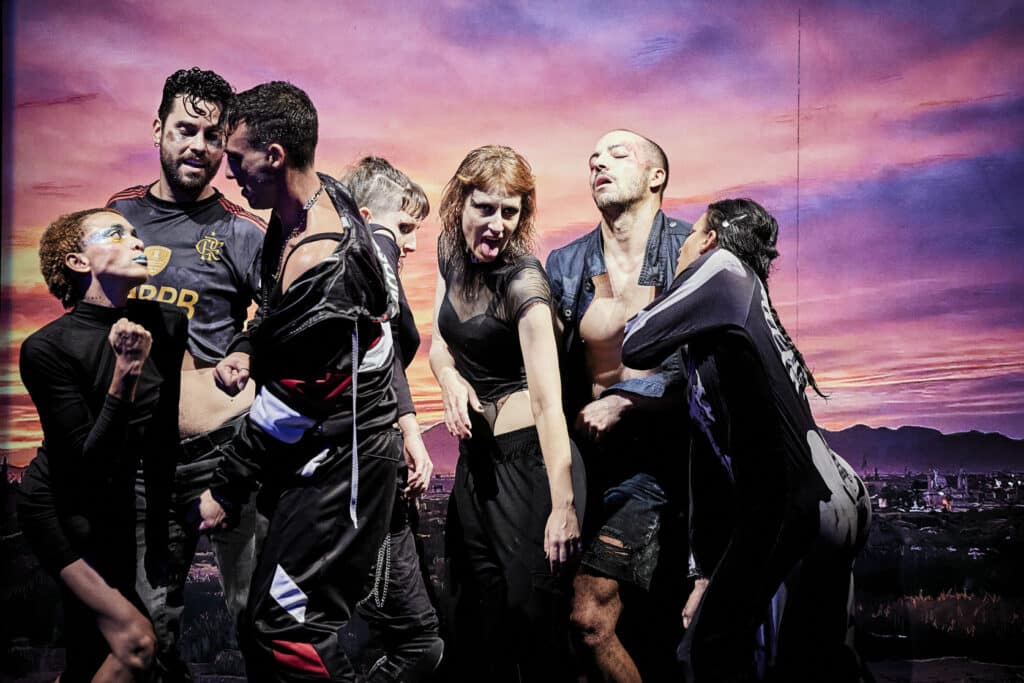
A Noiva e o Boa Noite Cinderela © Christophe Raynaud de Lage
Große Namen des Welttheaters treffen auf Radikalperformerinnen
Die Freie Republik Wien ist eine Republik der Künste: „Fünfeinhalb Wochen vielstimmiges, leidenschaftliches, kämpferisches, verrücktes Welttheater!“, nennt es der Festwochen Intendant im Rahmen der Pressekonferenz. So wird Wien dieses Frühjahr zur Welthauptstadt des Theaters: Der ungarische Regisseur Kornél Mundruczó erarbeitet mit PARALLAX eine Familiengeschichte über das Privileg und die Last von Identität, die Französin Caroline Guiela Nguyen erzählt in LACRIMA die tragische, globale Produktionsgeschichte eines royalen Hochzeitskleids, die Gewinnerin des Goldenen Löwen auf der Biennale di Venezia Christiane Jatahy lässt Hamlet als Frau zurückkehren. Performance-Star Florentina Holzinger wird mit dem Projekt SANCTA (Arbeitstitel) eine gemeinsame Messe mit dem Publikum feiern und Jossi Wieler die ausgezeichnete Jelinek-Inszenierung Angabe der Person ins Volkstheater bringen. Carolina Bianchi setzt bei ihrer weltweit diskutierten Performance Die Braut und Goodnight Cinderella ihren eigenen Körper ein, um die Grenzen der Kunst zu hinterfragen, Agnieszka Polska wird in ihrer ersten Theaterinszenierung The Talking Car das Verhältnis zwischen Mensch und Maschine ausloten und Leonie Böhm gemeinsam mit Kim de l’Horizon das Blutbuch in die theatrale Erzählung Blutstück verwandeln.
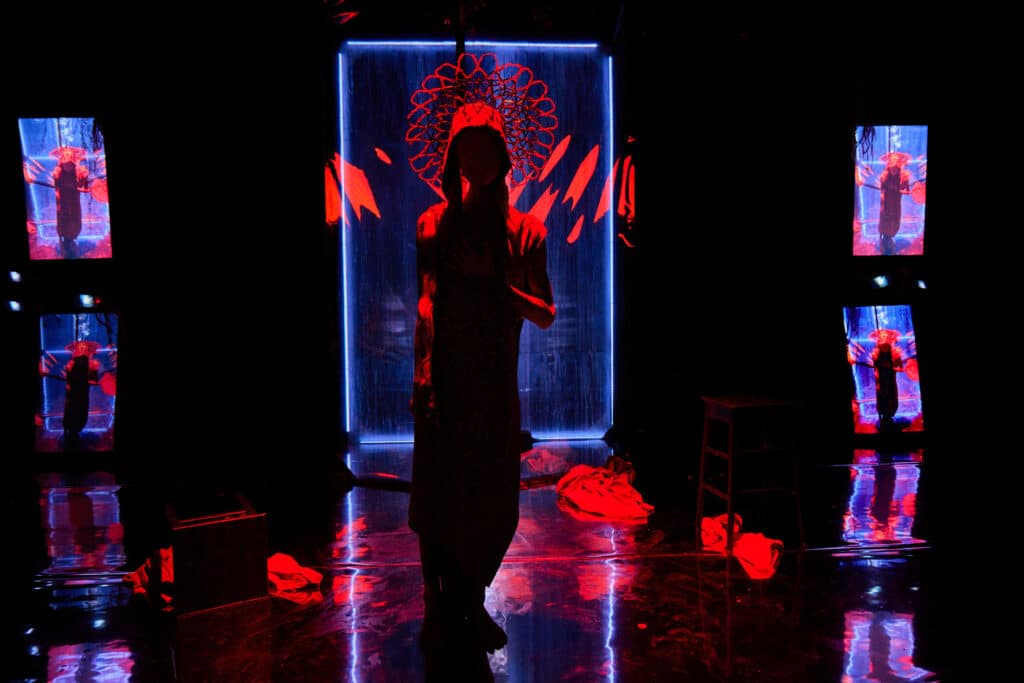
Fronte Vacuo © Marcel Urlaub
Die Freie Republik im Zeichen des Widerstands
Im Mittelpunkt des Festivals stehen die Themen Widerstand und Revolution: Musikalisch bringt der russische Dissident Kirill Serebrennikov gleich zu Beginn des Festivals mit BAROCCO ein Panorama des Widerstands vom Prager Frühling bis heute auf die Bühne des Burgtheaters, während die ukrainische Dirigentin Oksana Lyniv mit Jevhen Stankovychs Kaddish Requiem im und in Kooperation mit dem Wiener Konzerthaus ein Zeichen gegen Krieg setzt. Milo Rau nimmt mit seiner Mozart-Adaption La Clemenza di Tito die Scheinmoral der Elite der Gutmeinenden in der Halle E unter die Lupe. Revolutionäres Potenzial verspricht auch die Weltpremiere von nora chipaumires Projekt Dambudzo im und in Kooperation mit dem mumok sowie die Multimedia-Oper Woman at Point Zero von Bushra El-Turk. El-Turk ist eines der zehn ersten Mitglieder der globalen Komponistinnen*-Plattform Akademie Zweite Moderne, die bereits im Februar in New York der Öffentlichkeit präsentiert worden ist und unter der Patronage von Nuria Schoenberg Nono und in Kooperation mit dem Arnold Schönberg Center, ORF Radiokulturhaus und Ö1 das Erbe des Wiener Heroen der Moderne Arnold Schönberg radikal globalisiert und feminisiert.
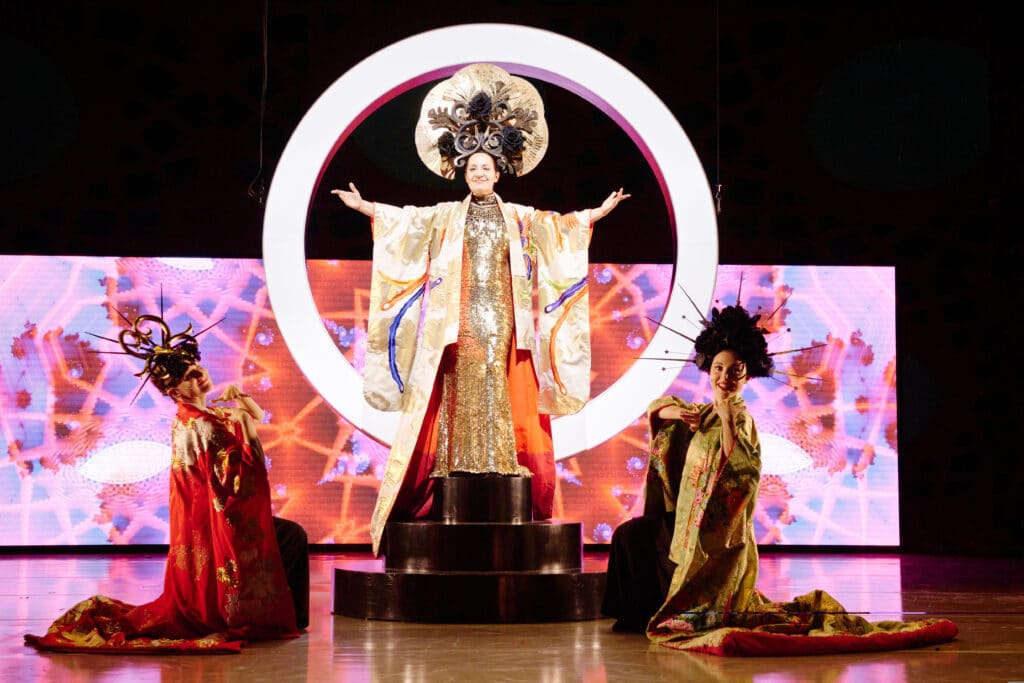
Barocco © Fabian Hammerl
Multimedia- und Armes Theater
Neben musikalischen und Sprechtheater-Großereignissen kommen auch Liebhaber:innen von multimedialen Theaterspektakeln auf ihre Kosten: In ROHTKO von Łukasz Twarkowski durchleuchtet ein 12-köpfiges Ensemble den größten Kunstskandal der Welt, die Beziehung zwischen Original und Kopie und fragt nach dem Wert von Kunst, während Yves Degryse in The Making of Berlin die Grenzen zwischen Fiktion und Dokumentation verschwimmen lässt. Humor zeichnet Tim Etchells Zweipersonenstück Die Rechnung aus, das von der Tschauner Bühne in Ottakring bis zum 48er- Tandler oder dem Fußballklub in Floridsdorf durch die Wiener Bezirke reisen wird – in Kooperation mit dem Volkstheater in den Bezirken. Bissigen Humor in Verbindung mit ausgefeilter Poesie verspricht Tempest Project – die letzte Arbeit des 2022 verstorbenen Theatermagiers Peter Brook – aber auch Meine Zeit wird nicht kommen, unsere mehrteilige Hommage an einen anderen Protagonisten der Wiener Moderne: Karl Kraus. Neben Kabarettist Florian Scheuba und den Schauspielern Cornelius Obonya und Robert Stadlober werden in Kooperation mit der Wienbibliothek im Rathaus u.a. auch Schriftsteller:in Barbara Zeman und Clemens J. Setz sowie die Grindcore Band Onkel Gusta die Werke des wortgewaltigen Satirikers und Kritikers in fünf Vorlesungen radikal aktualisieren. Das Zeitalter des Verbrennungsmotors als beendet erklären wird hingegen der flämische Theatermacher Kris Verdonck: In seiner Performance EXHAUST / ajax wird nach einer mehrstündigen Prozession ein Traktormotor im Rahmen einer gewaltigen Explosion rituell geopfert.
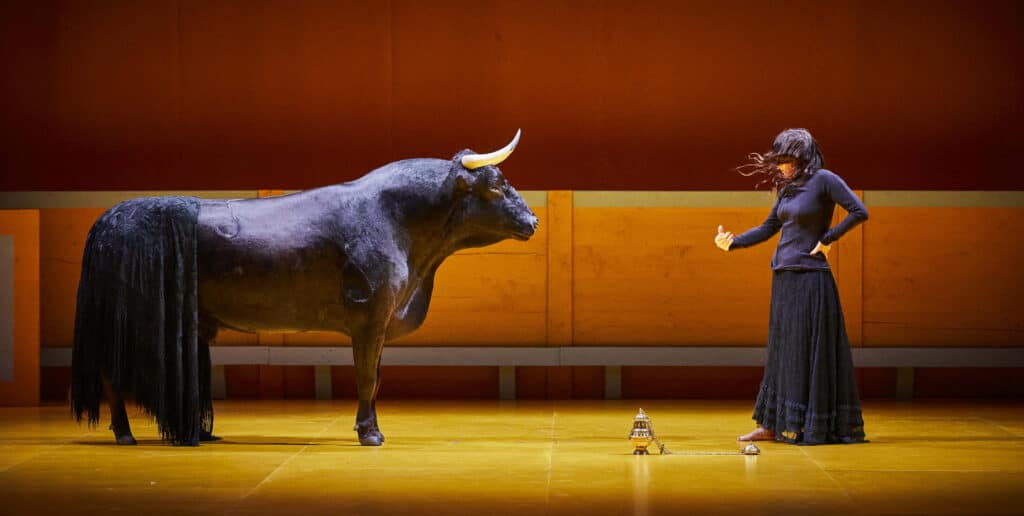
Liebestod © Christophe Raynaud de Lage
Haus der Republik und Die Wiener Prozesse
Das Herzstück des Festivals bildet das Haus der Republik im Volkskundemuseum. Die Wiener:innen sind in Kooperation mit der Klima Biennale und dem Volkskundemuseum während der gesamten fünfeinhalb Wochen eingeladen, in das offene Hauptquartier der Freien Republik Wien zu kommen. Hier arbeiten die Mitarbeiter:innen der Wiener Festwochen in ihren offenen Büros Seite an Seite mit lokalen und internationalen Initiativen. Wöchentlich finden die Hearings des Rats der Republik statt und es wird an der künftigen Verfassung der Freien Republik erarbeitet. Auch in die offene Werkstatt der Klasse für Bühnengestaltung der Akademie der bildenden Künste Wien wird das Publikum eingeladen. Seminare, Workshops und Diskussionsrunden mit Aktivistinnen und Aktivisten der Landlosenbewegung MST, Bewohnerinnen und Bewohner der Zad de Notre-Dame-des-Landes sowie Vertreterinnen und Vertreter der Republik Rojava und zahlloser weiterer Partnerorganisationen der Freien Republik Wien fördern den Austausch mit der Stadtgesellschaft. Revolutionär geht es während des Festivals auch in den Wiener Prozessen im Odeon zu: Ganz Österreich – Konzerne, Politik, Medien und nicht zuletzt die Kunst selbst – werden vors Tribunal der neu geschaffenen Republik zitiert, Urteile inklusive. Zum Abschluss von fünfeinhalb Wochen Festival werden die Ergebnisse von Diskussionen, Prozessen, Hearings etc. in der Wiener Erklärung festgeschrieben. Als verbindliches Regelwerk für die kommenden vier Jahre ist sie Grundlage für die zukünftige Programmierung der Festwochen. Als erstes Festival der Geschichte geben sich die Wiener Festwochen | Freie Republik Wien damit gemeinsam mit dem Publikum eine eigene Verfassung!
17. Mai bis 21. Juni 2024
www.festwochen.at

